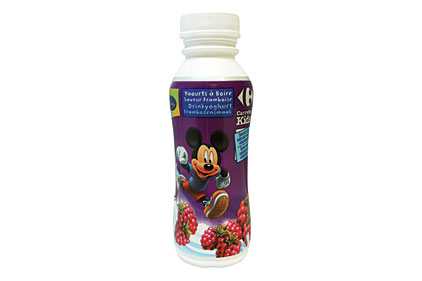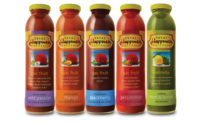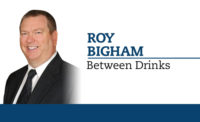According to business blog Bizshifts-Trends, Al Ries and Jack Trout popularized the concept of “positioning” in the retail shelf space in their 2000 book “Positioning: The Battle for Your Mind.” Positioning deals with the placement of a product on a retail shelf and analyzing how such placement can impact a consumer’s interest in buying the product while shopping. According to the authors, products placed on the bottom shelf typically will see lower sales volumes. In addition, because up to 80 percent of consumer decisions are made at the point of sale, this placement is very important, the authors said in their book.
In addition to aiming for beneficial shelf placement, brands also can utilize packaging and, more specifically, their product labels to catch a consumer’s eye and communicate pertinent product information to him or her. For example, the U.S. Food and Drug Administration (FDA), Silver Spring, Md., continuously updates the type of information brands must print on these labels. The labeling industry also has helped labels evolve to offer safety features as well, with some including anti-counterfeiting features, according to a 2012 report by PMMI, Reston, Va.
Heat shrink and stretch labels offer both of these advantages, according to PMMI. The association for packaging and processing technologies reports that 35 percent of manufacturers that it interviewed in its 2012 report used heat shrink and stretch labels, and half of that group said it planned to increase such use in the future.
Smithers Pira, Surrey, U. K., studies the packaging industry and has noted that the stretch- and shrink-sleeve packaging segment has grown during the past decade to about 12.5 percent of the market. The company reports that the drive behind this growth is increased brand identity and improved on-the-shelf impact to the consumer. In order to utilize these types of capabilities, beverage-makers are turning to a number of companies that can provide the capabilities to apply technology related to equipment and services for sleeve-label application.
Going to the source
PDC-Europe Americas Inc., Austin, Texas, offers stretch and shrink technology to manufacturers around the globe. The company says it can apply sleeves to any container size from 1 pint to 2.5 gallons. The stretch products are used to contain multiple containers for multi-packs or single containers. According to its website, the company can process shrink labels at speeds as fast as 600 bottles a minute. The company also maintains a state-of-the-art laboratory for analyzing the best materials for the job and performing test runs to prove the concept. Its machines use Allen Bradley platform equipment to supply reliable performance and accuracy. Its model STG-2BM can apply stretch labels at speeds as fast as 180 bottles a minute, depending on size, the company says. The company’s STA-BM machine can apply standard stretch sleeves, as well as high-elasticity stretch sleeves. Stretch sleeves typically are 30 to 50 percent lower cost than shrink sleeves and do not require a heat tunnel, the company says.
Fort Dearborn Co., Elk Grove Village, Ill., provides shrink-sleeve labels to meet a variety of needs, the company says. Shrink-sleeve labels help differentiate a brand on the shelf, whether it is a new product launch or the revitalization of an existing product line. Using shape and color, the labels provide 360-degree billboard graphics on contoured containers for dynamic shelf presence, it says. The company’s print capabilities include digital printing for prototyping, sales samples and small volumes; flexographic (water-based and UV) printing for mid-sized volumes; and rotogravure printing for larger runs. Additionally, it offers materials such as polyvinyl chloride (PVC), polyethylene terephthlate glycol-modified (PETG), oriented polystyrene sheet (OPS) and EarthFirst PLA polymer. Also, specialty inks including metallic, pearlescent and matte finishes can further help a product stand out on the shelf, the company says.
Hammer Packaging Inc., West Henrietta, N.Y., is another resource for shrink-sleeve products. Shrink-sleeve labels are one of the fastest-growing segments in packaging, the company says. The company has the capability to use a variety of materials for the 360-degree sleeve wraps and can offer printing capabilities to enhance any colors or designs necessary to meet the customer’s requirements. The company says it can reduce costs using its Variable Sleeve Offset Printing (VSOP) technology. The VSOP printing plates take only a few minutes to make and cost the customer nothing, according to the company. In this way, changes can be made quickly and easily, it notes. Customers also can request a design change, and the changes can be made in the same day to reduce downtime. This can be very useful for those short-time special promotion runs, it says.
Hammer Packaging also points out that the company’s label-application process includes a proprietary seaming system that can produce a seam that is narrower than industry standards. This capability allows the company to eliminate edge-lift for a smoother finish and avoid print gaps when the sleeve shrinks into place.
Sleeve Seal, Little Rock, Ark., is another resource for beverage-makers that are in need of wrapping equipment and services. The company claims it can print its sleeves using 10 colors with a rotogravure printing press. The process can supply labels with gloss, matte or pearl finishes that can be combined into a single run to provide striking results, it says. Additionally, the company makes its own sleeve materials out of PET, OPS or PVC in order to have complete quality control, the company says. The company website lists the nine sleeve labeler machines it offers to meet customer needs.
CP Packaging LLC, Appleton, Wis., acquired MRI Flexible Packaging, Newton, Pa., last fall. “We’re always looking for ways to offer our customers a higher level of value, service and innovation,” said Tony Vaudo, CP’s president and chief executive officer, in a statement. “MRI is a good fit.”
CP provides expertise in vacuum packaging; however, with the acquisition of MRI, it now can provide customers more resources when it comes to sleeve products. One of its products is a no-heat shrink label. No-heat labels usually are used for multi-packs, but MRI has developed a product for single products as well, the company says.
SleeveCo, Dawsonville, Ga., is a family-owned business that claims on its website that there are no challenges the company will not tackle. The backbone of its stretch and shrink labels is its flexographic and rotogravure print presses. The rotogravure press uses an 11-color application process. Additionally, the company employs a team of dedicated digital experts who can assist beverage-makers with their shrink and stretch label requests. In addition, its proofing process allows customers to work with the SleeveCo team to make changes quickly as needed. The inks used in the process provide a range of finishes and looks to meet customer requirements, the company says.
Overnight Labels Inc., Deer Park, N. Y., focuses on providing well-designed labels in order to produce the ideal product for its customers. In order to meet that promise, the company suggests submitting a sample of the container along with the desired graphics. The container will be evaluated by company experts to help choose the most efficient labeling materials. Some container shapes will require more aggressive shrink properties than others in order to properly conform to the shape and maintain desired throughput rates. Graphics must be at least 300 dots per inch in resolution. The company printing process uses Macintosh computers and software, so submitted formats must be in their native computer language such as Illustrator, Quark, InDesign or Photoshop files, it says.
Etimag USA, Springfield, Va., holds many patents for shrink-sleeve applications. After establishing its capabilities in Europe and Asia since 2000, the company expanded into the United States. The company makes its own shrink-label materials and uses an eight-color printing flexo UV printing press. Product security is an important element for beverage suppliers today, the company says. To offer this, Etimag provides shrink security sleeves that easily can be identified if tampered with. Additionally, Etimag can supply holograms or special inks for additional security needs.
Since 1991, Axon Corp., Raleigh, N.C., has been supplying shrink sleeves to the consumer packaged goods market. The company’s gear can be adjusted to integrate with any manufacturer’s existing packaging line for easy transition, it says. Axon’s equipment also is engineered to reach maximum throughputs of up to 800 containers a minute, depending on the application.
Where to start
According to helpsme.com: “Buyers are usually willing to pay more for products that have an attractive look or feel. [For example,] Apple is able to charge more for its computers in part because of Apple’s focus on a slick user interface and product appearance.” This is called product style, it notes.
Dictionary.com defines style as a particular kind, sort or type, as with reference to form, appearance or character. In the case of the beverage industry, a product’s package and label could constitute its style. As mentioned above, most label suppliers have the capability to assist potential customers in designing labels to improve the styles of products. As more beverage-makers look to incorporate shrink- and stretch-sleeve labels in their packaging designs, they will not be at a loss of sources from which to choose.




